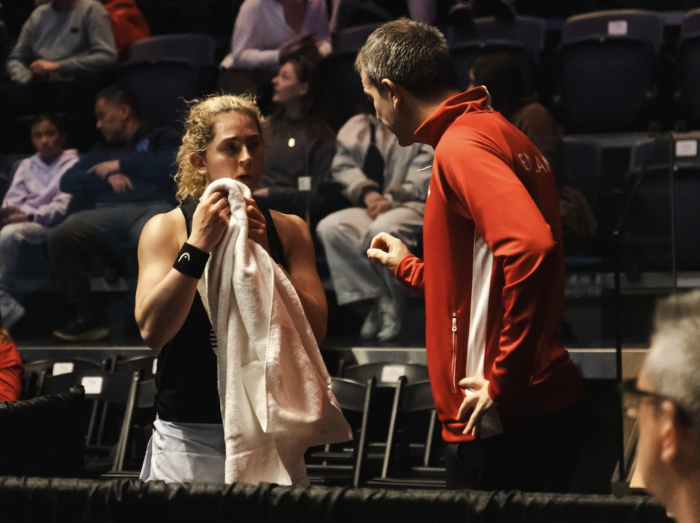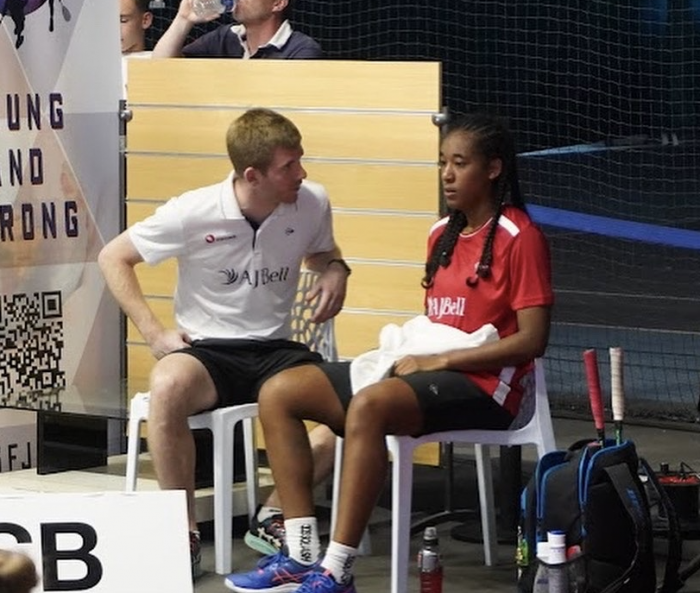Coaching requires multiple skill sets that can be differentiated into two core categories, EQ and IQ. When combined, these are behavioural skills.
Emotional Intelligence
EQ, or Emotional Intelligence, is the ability to manage your own emotions and understand the emotions of those around you.
 People displaying high-level EQ have an advanced ability to use empathy: it is a highly valued skill. It’s the ability to place yourself in the shoes of those you are working with, it allows you to really understand how they take on board information, and broaden their entire worldview. It can really help you best shape and communicate your content in a way that lands perfectly with the target.
People displaying high-level EQ have an advanced ability to use empathy: it is a highly valued skill. It’s the ability to place yourself in the shoes of those you are working with, it allows you to really understand how they take on board information, and broaden their entire worldview. It can really help you best shape and communicate your content in a way that lands perfectly with the target.
Other EQ skills are social behaviour skills, such as well-placed humour and sympathy, behaviours that create a great ‘atmosphere’ in your relationships. These can be implemented as a tool kit of methods used in player interaction, delivering messages in a way that is memorable and timely for the individual. Knowing how to use tone of voice is another key element. Understanding how to go up and down in tone, as well as volume, are elements that can be used to keep practice and delivery engaging, fun and highly productive.
This leads to the push and pull skills. Knowing how to get the most out of people and keep them motivated is very individual. Some players require a nudge (push), others need probing to facilitate motivation from within (pull). As coaches, we can also find ourselves moving between these, and then timing becomes critical. Staying in tune in your coaching relationships enables this to be optimally pitched, the right method(s) at the right time, in the right way. This also includes the vital skill of listening, and active listening to be specific. Knowing when the time is to talk and listen sounds simple but can often be overlooked as a key skill that underpins others.
Intelligence Quotient
IQ, or Intelligence Quotient is defined as an ability to reason and solve problems. In this context, it is the proficiency in and practice of a specific game.
 Whilst at the professional level in-depth knowledge of the game is a given, it still needs to be actively promoted to all players. Application of that knowledge in the sporting setting is using intelligence.
Whilst at the professional level in-depth knowledge of the game is a given, it still needs to be actively promoted to all players. Application of that knowledge in the sporting setting is using intelligence.
An eye for small details helps. The coach should identify the smallest components of technical skills to pick out areas for improvement. It can also improve apparent strengths. An ability to identify fundamental issues in a player’s game will avoid the frequent problem of making one change only to cause another. Correctly identifying the root cause can save a lot of time and speed up improvement to its optimum.
Coaches should have a baseline vision for how they would like the game to be played by every player. But more importantly, that vision should extend to the best version of the person. Working this out and applying it consistently is the route to the biggest improvements.
Player behavioural development is the key to excellence in coaching. It requires us to identify and promote personalised improvements in both EQ and IQ, in tandem and seamlessly. We identify the best coaches as having this ability, the ability to filter knowledge and transfer it in a way that the player will clearly understand, buy into and act on. Sustained improvement is the method by which we achieve the vision.
 It is important to affirm that both EQ and IQ are capable of improvement. Nobody stays static, nor do our relationships. Ensuring we keep alert to new ways to improve allows us to progress and stay ahead of the game. One interesting observation displayed in long-term coaching relationships is the evolution of the way the coach and player interact with one another. The use and development of both EQ and IQ with the progression of the player as both a person and in a game sense is important to keep things fresh, and development remaining constant. Staying closely in tune with the player at the core is key to this.
It is important to affirm that both EQ and IQ are capable of improvement. Nobody stays static, nor do our relationships. Ensuring we keep alert to new ways to improve allows us to progress and stay ahead of the game. One interesting observation displayed in long-term coaching relationships is the evolution of the way the coach and player interact with one another. The use and development of both EQ and IQ with the progression of the player as both a person and in a game sense is important to keep things fresh, and development remaining constant. Staying closely in tune with the player at the core is key to this.
So, next time you are coaching, or being coached, look to spot how these two factors play out, and how you can use a better awareness of the two to see the quickest improvements.
High Performance Coach
Learn How To Create Brilliant Coach/Player Relationships
Check out Josh Taylor’s series where he provides insight into what it takes to develop aspiring juniors into world-class professionals.
It’s an essential watch for aspiring coaches, especially those keen on nurturing junior talent, but also for players who want to maximise the impact having a coach can bring.
Watch The Series